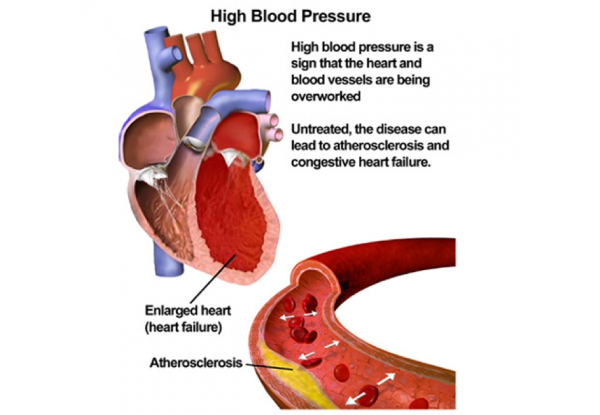Systemic Hypertension: Key Information
Systemic hypertension, also known as high blood pressure, occurs when the force of blood against the artery walls is consistently too high, which can lead to damage of blood vessels and organs over time.
Key Points:
Types:
- Primary (Essential) Hypertension: This is the most common form and develops gradually without a known cause. It is influenced by factors such as genetics, poor diet, lack of physical activity, and stress.
- Secondary Hypertension: Caused by another medical condition such as kidney disease, sleep apnea, hormonal disorders, or certain medications.
Symptoms:
Often called the "silent killer" because many people with hypertension experience no noticeable symptoms. In severe cases, symptoms may include:
- Headaches.
- Shortness of breath.
- Nosebleeds.
- Dizziness or blurred vision.
These symptoms usually occur once blood pressure is extremely high and has been untreated for a long time.

Diagnosis:
- Blood pressure measurement: Blood pressure readings are taken with a sphygmomanometer. Hypertension is typically diagnosed when readings consistently exceed 140/90 mmHg.
- Additional tests: Blood tests, urine tests, electrocardiogram (ECG), and imaging may be used to check for damage to organs and identify any underlying conditions.
Treatment:
Lifestyle changes:
- Dietary modifications: Lowering salt intake, eating more fruits and vegetables, and reducing processed foods.
- Regular exercise: Helps to maintain a healthy weight and improve heart health.
- Stress management and sufficient sleep.
- Limiting alcohol and quitting smoking.
Medications:
When lifestyle changes are not enough, doctors may prescribe antihypertensive drugs, such as:
- Diuretics.
- ACE inhibitors.
- Calcium channel blockers.
- Beta-blockers.
Complications:
If left untreated, hypertension can lead to serious health problems such as:
- Heart disease (heart attack, heart failure).
- Stroke.
- Kidney damage.
- Vision loss.
- Aneurysms (enlarged blood vessels that can rupture).
Systemic hypertension is a manageable condition, but if not controlled, it can significantly increase the risk of severe health issues. Regular monitoring, lifestyle changes, and medication are crucial in managing and preventing complications.